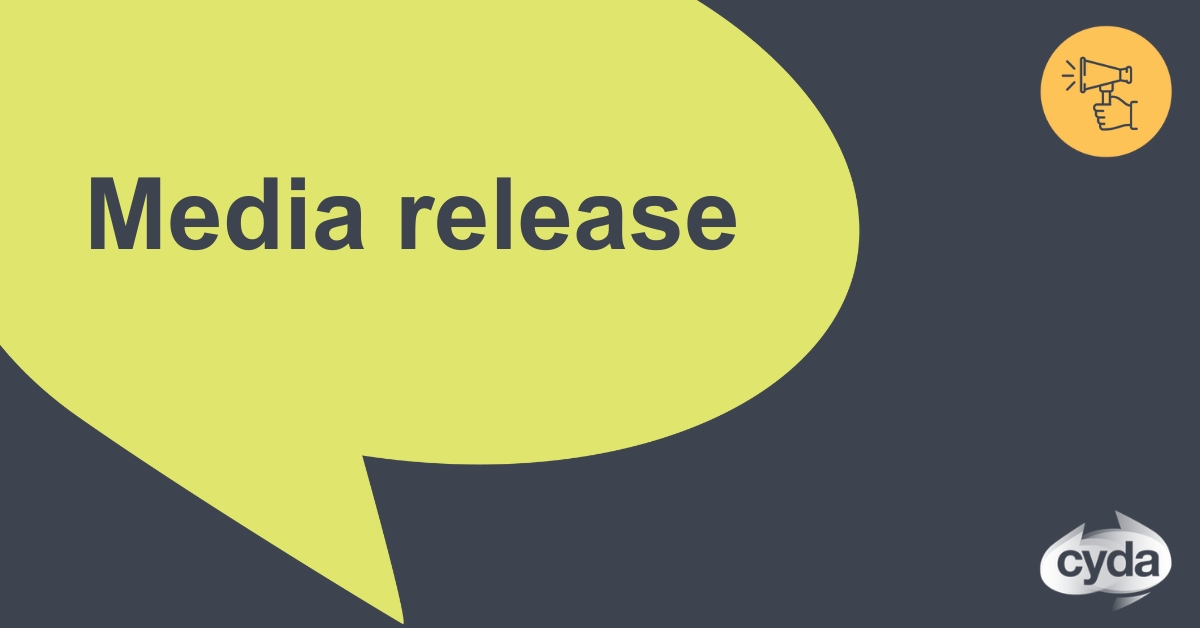The NDIA and Victorian Government must prioritise people with disability so they do not suffer in Stage 4 lockdowns
As the Victorian COVID-19 situation worsens and ‘a state of disaster’ is declared, children and adults with disability need to be a primary focus of government. We have already seen infections in group homes for people with disability, and significant impacts on their access to services and children’s right to education.
As the situation in the aged care system shows, it is vital that the Commonwealth and states work together to eliminate critical gaps for people with disability during the pandemic, including children and young people. A lack of joined-up planning and response creates preventable harm and risks.
There is a real risk that we will see increased impacts on children and adults with disability as the pandemic progresses, and if not properly planned for these will lead to tragic outcomes.
We, as a concerned group of disability advocacy organisations and academics, call on the Victorian Government, the Australian Government and the National Disability Insurance Agency (NDIA) to make an urgent plan to ensure no person with disability is left behind.
This must:
- Guarantee people with disability in Victoria can get the supports they need.
- Urgently deliver a targeted, accessible inclusive information and communications strategy for all people with disability, in partnership with disability advocates.
- Urgently fund and support disability workers to undertake high-quality training in infection control and PPE management, with a particular focus on casual workers and those in insecure employment.[1]
- Ensure that all support workers and people with disability have full supplies of PPE
- Provide equivalent protections to disability support workers as what is being made available to aged care workers, so they don’t work across settings risking virus transmission and leaving people without support.
- Fund and provide individualised supports and accommodations for students with disability at home, using a service delivery platform similar to tele-health. This will ensure families in Victoria no longer need to make the impossible decision between the health of their child and physically attending school because they do not have enough support at home.[2]
- Ensure effective measures are in place to recognise and respond to violence and abuse against people with disability at this time, as the risk of family violence and restrictive practices will increase during lockdown.
The Disability Royal Commission is holding a public hearing in August to examine the impact of the COVID-19 pandemic on people with disability. It is not too late for governments and agencies to take strong and decisive action so we don’t need to be constantly looking backward at what could or should have been done.
Quotes attributable to Mary Sayers, CEO, Children and Young People with Disability Australia
“Because of the disruption students with disability have faced in their education and in other ways during the pandemic, the psychological impacts and trauma they have experienced is likely to be heightened. Around half of children with disability and their families reported a decline in their mental health through CYDA’s two recent surveys.”
“Providing the right supports at the right time increases students with disability’s engagement in their learning and their connections to their peers. This leads to reduced uncertainty and harm for kids and their education.”
Quotes attributable to Katherine Ellis, CEO, Youth Affairs Council of Victoria and Youth Disability Advocacy Service
“All young disabled people in Victoria need to have full supports to access the education curriculum and to maintain their social connections, including devices and sufficient data. They also need accessible and dedicated mechanisms to feed back their experiences to decision makers.”
Quotes attributable to Professor Helen Dickinson, University of New South Wales, Canberra and Centre of Research Excellence in Disability and Health
“Sadly many children and young people with disability are being left behind again and this will compound the poor outcomes that this group often demonstrates.”
“Our research shows that where schools and government agencies take a proactive approach it can have a positive impact in engaging children and young people in their learning and reduce feelings of isolation.”
Quote attributable to Catherine McAlpine, CEO, Inclusion Australia
“There are huge similarities between the aged care and disability workforces which means that similar steps need to be taken to protect people with intellectual disability during the pandemic.”
Quote attributable to Mary Mallett, CEO, Disability Advocacy Network Australia
“Disability advocates are keen to work with the NDIA, and the Victorian and Australian governments, to ensure that people with disability are connected with, and listened to, and their wellbeing is actively monitored during these restrictions.”
Quotes attributable to Dwayne Cranfield, CEO, National Ethnic Disability Alliance
“In additional to the existing factsheets, our members in the Culturally and Linguistically Diverse (CALD) community have demanded a CALD health focused approach to lockdowns, using bilingual health workers and bilingual NDIS paid carers, where possible. Community radio could also be a medium to consider to better reach CALD Australians.”
Media contact
Sue Tape
CYDA Communications Advisor
0424 603 892
[email protected]
This media statement has been endorsed by the following organisations
- Children and Young People with Disability Australia (CYDA)
- All Means All – The Australian Alliance for Inclusive Education (All Means All)
- Imagine More
- Inclusion Australia
- Women with Disabilities Australia
- People with Disability Australia
- Disability Advocacy Network Australia
- Queensland Collective for Inclusive Education (QCIE)
- YDAS Youth Disability Advocacy Network
- YDAS Youth Disability Advocacy Service
- Down Syndrome Australia
- Centre of Research Excellence in Disability and Health
- Family Advocacy –
- Queensland Advocacy Incorporated (QAI)
- NEDA National Ethnic Disability Alliance
- Australian Federation of Disability Organisations
[1] New research has shown 23% of disability support workers have received no training in PPE and of those who had 48% reported needing more – https://mspgh.unimelb.edu.au/news-and-events/disability-support-workers-and-covid-19-findings-from-our-survey
[2] Research by CYDA shows the devastating impacts on children and young people with disability and what needs to be done to provide essential support More than isolated: The experience of children and young people with disability and their families during the COVID-19 pandemic, May 2020 Not even remotely fair: Experiences of students with disability during COVID-19, July 2020
Download CYDA’s survey reports here:
Not even remotely fair: Experiences of students with disability during COVID-19, July 2020
Media contact:
For media interviews with Mary Sayers CYDA CEO, call Sue Tape on 0424 603 892 or email [email protected]
The Australia Coalition for Inclusive Education (ACIE) has developed an advocacy document for government, Providing inclusive education in a time of crisis: Principles and Recommendations.
This document has been provided to all education ministers across the states and Commonwealth and it outlines principles and recommendations to ensure inclusive education during the COVID-19 pandemic.
We have also developed a resource for families and young people with disability, Learning at home during a time of crisis: COVID-19 (Coronavirus).







